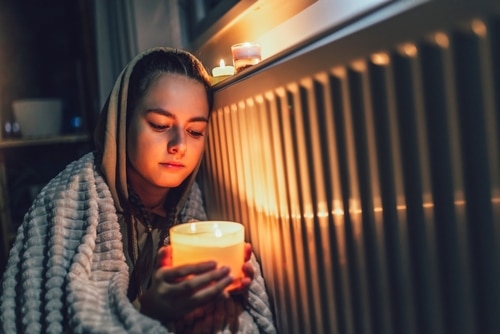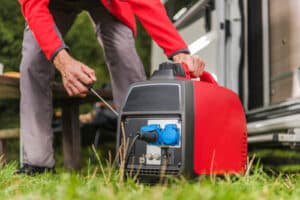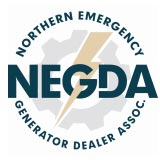
Consistent and reliable power is a necessity in today’s world. The need to meet uninterrupted energy demands only becomes more important as businesses and homes grow.
A generator is the most effective way to protect your home from sudden and unexpected power outages. Keep reading to learn what the difference is between a standby and a portable generator!
What Causes Outages?

Power outages can come at any time for a number of reasons. Pow’r Point services New England, which are prone to blizzards and other storms.
Inclement weather that damages power lines is a frequent culprit when it comes to blackouts, but it is not the only one. Excessive heat in the summer can strain power grids, creating shortages.
Wildlife can disrupt equipment. Sometimes, a power outage can be caused by human error.
Whatever the reason, losing power at the wrong time is an inconvenience. However, it can also be dangerous. Investing in the right generator is key to keeping your home or business safe.
What is a Standby Generator?
A standby generator is a powerful engine that delivers energy to your home at any time. After being installed by a professional, it is always connected to your home, ready to switch on.
It is permanently fixed to a concrete pad close to your home. A standby generator often has supplementary features, such as noise suppression and real-time monitoring.
Some standby generators can be connected directly to a utility line like natural gas, so they are always fueled. Most standby generators feature an automatic transfer switch, which prompts the generator to turn on if it detects a loss of power.
The ATS disconnects you from the main grid completely before generating power. An ATS also shuts the generator down as soon as the primary grid comes back online.
This feature may be more important than you realize. Back-feeding power into the grid can cause fires and poses a serious risk to utility workers working on power lines.
What is a Portable Generator?

As the name suggests, a portable generator is a generator that can be moved around. It requires no special installation other than connecting it to your appliances when needed.
Portable generators sacrifice power and reliability for convenience and a lower upfront cost. Portable generators are typically strong enough to supply power to critical appliances but not much more.
How Do I Know Which Generator is Right For Me?
Deciding between a portable generator and a standby generator will mostly come down to your budget and your energy demands. However, it is good to have a breakdown of exactly how they stack up against each other.
Power Output
Standby Generators:
Typically larger and produce significantly more power compared to portable generators. Most are designed to provide emergency power to an entire household or business.
Most appliances will run seamlessly through an outage.
Portable Generators:
They are less powerful than their standby counterparts. Most can only provide enough power to run a few appliances at a time.
Advantage: Standby Generators

Installation:
Standby Generators:
Requires professional installation, which is more complex. You will need the generator technician to place the generator, an electrician to hook it up, and a plumber to connect it to a utility (if applicable).
However, once installed, the generator placement is permanent.
Portable Generators:
Easy to set up and take down. Most portable generators are connected directly to appliances using extension cords.
Depending on how frequently you experience outages, setup can be more frustrating, since portable generators need to be connected and disconnected each time.
Advantage: Tie
Fuel
Standby Generators:
It can be connected directly to a utility such as natural gas. This provides a continuous supply of fuel, so you don’t have to brave the New England winter to refuel.
Portable Generators:
Typically run on gasoline, but some run on propane or natural gas. They require constant refueling, which can be a concern during an extended outage.
Advantage: Standby Generators
Efficiency
Standby Generators:
Usually more efficient than portable generators, which can reduce fuel costs and improve run-time, which is only important if you are not connected to a utility.
Portable Generators:
Usually less fuel efficient than standby generators.
Advantage: Standby Generators
Maintenance
Standby Generators:
Standby generators are much more reliable. Most models can perform self-tests, and Pow’r Point offers easy maintenance agreements to ensure your product will run.
During these visits, the technician will perform tests, repairs, and replace filters.
Portable Generators:
These need more frequent maintenance. You will need to perform the maintenance yourself, or take it to a specialist regularly.
Without proper maintenance, your generator may fail and need expensive repairs.
Advantage: Standby Generators
Cost
Standby Generators:
Significantly higher upfront cost. A standby generator should be considered a home improvement and an investment.

Portable Generators:
Friendlier to a tight budget. Suitable for temporary use in an emergency, but will cost more over a long term with higher fuel costs and additional accessories such as extension cables.
Advantage: Portable Generators
The Verdict
For most people, standby generators will be the clear victor in terms of quality. Portable generators are better than nothing, but you should consider investing in a standby generator as soon as you can.
Pow’r Point can help with easy financing and transparent cost assessments. Contact the professionals at Pow’r Point Generators to learn more about your options today!





